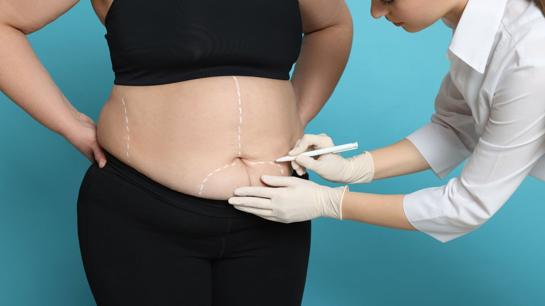Gastric Sleeve Surgery Abroad Guide
Looking into gastric sleeve surgery abroad? Discover how sleeve surgery overseas offers affordable prices, modern care, and lasting weight loss. A real-world guide to safe bariatric surgery abroad and medical tourism options.
Why So Many Eyes Are Wandering Beyond Borders for Weight Loss Surgery
You wouldn’t guess it reading travel blogs or scrolling social feeds, but there’s a subtle shift happening. More and more people—often after months, sometimes years, of fighting with diets and disappointment—find themselves staring at the idea of gastric sleeve surgery overseas. It’s not something most people talk about openly. Who wants to admit, around a kitchen table, that local options are just too expensive, or that the waiting list might outlive your patience (and, let’s be honest, your hope)?
You search quietly. Maybe after another “last try” diet, a tough talk with your doctor, or hearing someone at work quietly mention they flew abroad and “just did it.” And suddenly, the idea of bariatric surgery overseas isn’t about running from problems. It’s about chasing a future that finally feels possible.
Sometimes what you’re really looking for—under all the logistics and numbers—is dignity. Being treated like a person instead of a list of failed diets and weigh-ins. If any of that feels familiar, read on.
What Really Is Gastric Sleeve Surgery?
Let’s set aside medical jargon. Here’s what actually happens: a surgeon removes about 80% of your stomach, leaving a narrow tube (the “sleeve”). This has two effects—less space for food, and less “hunger hormone” getting made. You feel fuller, faster. You want less. And your eating patterns reset.
The results? For most, this means losing 50–70% of excess body weight over a year or two. Along with that comes lower blood pressure, better joint health, more energy, and (occasionally) the confidence to say “yes” to the things weight once made impossible.
But nobody talks enough about the emotional side. It’s not just clothes, or food. It’s grief, hope, anxiety, relief—sometimes all in a week. Sleeve surgery is a beginning, not a finish line.
Why Not “Just Do It” at Home?
Let’s get candid. For many, the answer comes down to cost and accessibility:
- In the US, UK, or Canada, even with insurance, you might face bills of $15,000–$25,000.
- At home, waitlists can stretch for months or years, especially in public systems.
- Pre-op “requirements” (failed diets, months of dietitian logs, psych evals, medical sign-off) frustrate many. Abroad, such hoops are fewer and often more practical.
Then there’s privacy. No running into Karen from HR in the hospital lobby. No workmates seeing you on the liquid diet stage. For some, a clinic abroad means freedom—from judgement, whispers, and the slow, stalling grind of local policy.
But if you ask returnees what really mattered, it wasn’t just money saved. It was being seen, understood, and finally given a path that felt hopeful.
How Does the Process Really Work Overseas?
Choosing a Country & Clinic
Popular destinations for gastric sleeve surgery abroad include Turkey, Mexico, Poland, Czech Republic, Thailand, and Spain. What unites the good ones? Not just price, but:
- Bariatric specialists with hundreds (often thousands) of successful surgeries
- International or national hospital accreditation
- Multilingual coordinators and inclusive, seamless logistics
- Clinics with their own diagnostic centers, labs, modern ORs, private patient rooms
- Transparent stats: infection rates, leaks, patient satisfaction, “hard stops” for unsafe cases
Avoid any that can’t show certifications, won’t tailor pre-op plans, or won’t share complication rates.
The Step-By-Step Experience
- Virtual consult: You send records, answer health/lifestyle questions, get a detailed written plan
- Pre-travel coordination: You’re assigned a patient manager or coordinator to book flights, hotel, pickups
- Arrival & pre-op day: Full medical exam, labs, scans. Detailed (and often kind) explanation of each step
- Surgery day: Laparoscopic sleeve with general anesthesia, 1–2 hours, then transfer to monitored recovery
- Post-op recovery: 2–4 days hospital, transition to drinking fluids, walking, managing pain
- Discharge: Care plan, written instructions, emergency contacts; some clinics offer hotel nurse check-ins or telemed support
- Ongoing aftercare: Video/phone follow-up, detailed dietary plan, return home with all documentation for your local doctor
What Makes the Best Clinics “Best” for Gastric Sleeve Surgery Abroad?
- Lead surgeons with decade+ experience, specialized in bariatric surgery—ask for annual sleeve numbers, not just total cases
- Anesthesiologists and nurses on staff 24/7—not just “visiting for surgeries”
- Dietitians and psychologists available pre/post-op (even if remote)
- Local hospital privileges for emergencies—not just a “standalone” clinic
- Strict protocols for infection control, pre-op screening, and readiness to cancel if risk is too high
- Post-op support with specific instructions, not vague “call us if anything’s wrong”
- Real complication rates (international norm: ~1–2% leaks, <5% significant complications)
- Modern tech: carbon dioxide insufflation, advanced laparoscopy towers/cameras, ERAS (enhanced recovery) pathways
What Does It Feel Like as a Patient Abroad?
Nervous and relieved all at once. Many admit they felt “more seen” during pre-op interviews than at years of home consultations. Treated with patience: extra time for questions, repeat explanations, help navigating nerves or language slips.
Clear explanations around risk, logistics, payments—every step is usually mapped out before you get near a gown.
Genuine, kind staff: they celebrate with you on your “first water sip,” help with post-op walks, notice homesickness—and sometimes jokes are actually better in translation.
But it’s not all perfect: Sometimes you miss home, or get anxious about the unfamiliar, or wish meals were less…well, liquid. Most say the kindness of a good nurse or just being in a room with others on the same journey can make all the difference.
What About Cost? A Real Comparison
| Item/Stage | At Home (US/UK/Canada) | Gastric Sleeve Abroad |
|---|---|---|
| Surgery & Hospital Stay | $15,000–$25,000 | $4,500–$8,000 |
| Anesthesia | $2,000+ (often extra) | Included |
| Pre-op scans/labs | $500–$1,500 | Included |
| Dietitian, follow-up | $500+ | Usually included |
| Flights & hotel | N/A | $800–$2,000 |
| Wait time | Weeks–months | Days–weeks |
Always ask for a written, detailed quote; everything from transfers to extra nights should be disclosed in advance.
If a clinic hedges on “what’s included,” move on.
Key Questions to Ask Before You Commit
- Who is my surgeon, and how often do they do sleeves?
- What’s included?
- Is the hospital full-service in case of emergencies?
- Who handles complications if I’m home and need help?
- How do I reach a staff member, and will written instructions be in my language?
- What are the actual local leak/infection/reoperation rates last two years at this center?
- Do I meet a dietitian pre-op? What follow-up/monitoring is expected after I leave?
How Safe Is Gastric Sleeve Surgery Abroad?
Truthfully? As safe as the clinic’s processes, staff, and honesty. Look for:
- Transparent, published complication and leak stats
- Willingness to cancel or postpone for pre-op medical or psychological issues
- Realistic talk about risks: leaks, blood clots, infection, pulmonary events
- 24/7 in-house anesthesia and surgical backup (not “on call”)
- Infection prevention protocols clearly visible (hand-washing, surface disinfection, equipment autoclaves)
- Sensible, gradual food/nutrition protocols—not “you can eat anything after 10 days”
Aftercare & Recovery: What Actually Happens When You Get Home
- Clear plan: Most reputable clinics provide day-by-day post-op plans, including red flag symptoms (fever, pain, shortness of breath).
- Contact: WhatsApp, email, or phone check-ins for the first few weeks.
- Documentation: Full operative report, before/after labs, and medications sent with you or to your local doctor.
- Diet: Weeks of liquids, then soft foods, gentle advance—most return to “normal” activity within two weeks.
- Support: Emotional adjustment is real; best clinics assign remote dietitian or psychologist for ongoing support.
If a clinic gives vague or dismissive aftercare, walk away.
Risks You Need to Know (And How to Minimize Them)
Even abroad, great clinics are clear about:
- Leaks: 1–2%; the most serious risk, managed by quick diagnosis and intervention
- Infection: <1% if strict protocols followed
- Bleeding, clots: Rare, but clinics use regular walking, compression devices, and daily checks
- Nutrient deficiencies: B12, iron, vitamin D, calcium—long-term supplements are non-negotiable
- Weight regain: Happens if aftercare and lifestyle changes are ignored
Best outcomes happen when patients are honest about their history, follow protocols, and keep up with labs and diet changes at home.
Who Should (and Shouldn’t) Consider Gastric Sleeve Surgery Overseas?
Ideal candidates:
- Adults with BMI >35 (or >30 with two obesity-related illnesses)
- Cleared by doctor for anesthesia, no severe unmanaged bleeding, heart, or lung disorders
- Realistic about surgery as a tool—not a magic cure
- Support at home for the first weeks and openness to remote monitoring
Those who may need to reconsider:
- Severe cardiac, liver, or uncontrolled diabetes
- Untreated psychiatric illness or active substance abuse
- Zero support at home and no ability to do remote check-ins
- Hoping for an “instant, no work” solution
The Human Side: What Surprises People Most?
- Recovery is sometimes easier than imagined—thanks to attentive staff and modern pain management.
- The kindness of someone halfway around the world—remembering your favorite tea, or helping walk laps after surgery.
- Community—meeting fellow travelers at a clinic or hotel, cheering each other’s small victories.
- The emotional rollercoaster: relief, pride, even sadness—sometimes grieving “old comforts” as new routines stick.
Typical Results: Honest Numbers
| Metric | Typical Outcome (top clinics) |
|---|---|
| Weight loss (1–2 yrs) | 55–72% of excess weight |
| Hospital stay | 2–5 days |
| Return to “normal life” | Within 2 weeks |
| Complication (major) | 1–3% |
| Re-op or leak | 1–2% |
| Quality-of-life satisfaction | 80–95% |
Final Thoughts: Is Gastric Sleeve Surgery Abroad Right for You?
There’s no “right” answer—just an informed one. Research. Ask uncomfortable questions. Listen to your gut as much as your coordinator. Surround yourself with honest providers, clear support, and friends who root for your journey—not just your before/after photo.
For many, the decision to go abroad for bariatric surgery isn’t about shame or giving up. It’s about believing you deserve choice, quality, and hope—no matter where you’re starting from.






















